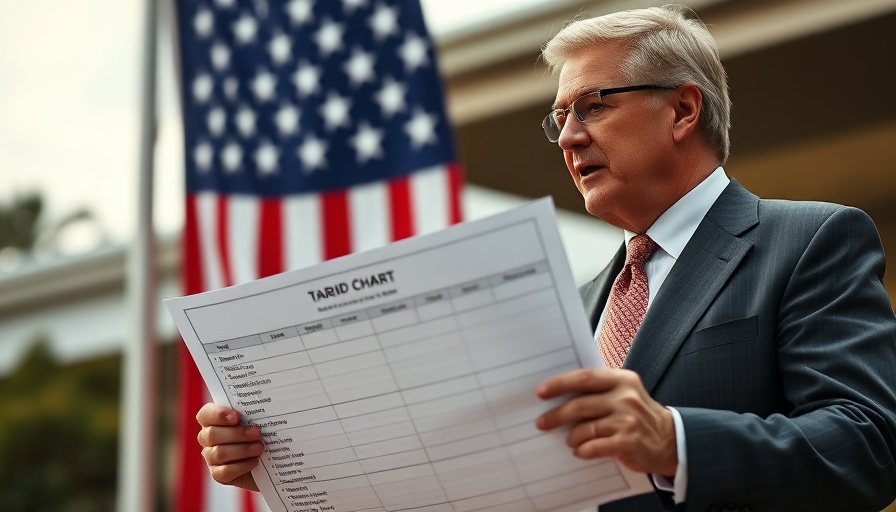
The Court Ruling That Could Change Tariff Policy
A pivotal ruling from the Court of International Trade concluded that former President Donald Trump's tariffs cannot be enacted unilaterally. The court's decision stemmed from two lawsuits challenging the administration's so-called "Liberation Day tariffs," initiated on April 2, which aimed primarily at countries like China and members of the European Union. The lawsuits, one brought forth by a coalition of small businesses and another by twelve Democratic Attorneys General, contended that only Congress holds the power to levy tariffs.
Understanding the Basics: Legal Authority on Tariffs
The court's ruling established that the International Emergency Economic Powers Act, utilized by Trump for tariff imposition, does not endow him with limitless authority, as noted by Boston University economics professor Tarek Hassan. This decision alters the landscape of tariff policy, indicating that tariffs may only be adjusted in response to manifest unfair trade practices or as part of broader sanctions. "The legal foundation for the recent trade war is tenuous, and this ruling highlights the necessity of Congressional oversight regarding tariffs," said Hassan, further emphasizing the ruling's potential to mitigate risks of a recession.
Impact on the Economy: A Sigh of Relief?
Economists are cautiously optimistic about the ruling's implications for the U.S. economy. Hassan remarked, "I truly believe that this court decision might spare us from recession," indicating the need for stabilization in the current financial climate. The uncertainty surrounding tariffs had created anxiety in financial markets, and without the incessant threat of executive-level tariff imposition, there could be a path forward for economic growth. The tariffs on steel and aluminum, which will remain until further investigation into national security risks is completed, are seen as an outlier rather than the norm.
A Broader Look: Tariffs and International Relations
This landmark ruling may also resonate beyond U.S. borders. Countries affected by Trump's tariffs will likely have renewed grounds for negotiation as the specter of unilateral tariffs dissipates. The Trump administration's approach to tariffs had been characterized by a blend of bravado and unpredictability, often straining international partnerships. Experts argue that reinstating a legislative check on tariffs will enhance diplomatic relations and foster more predictable trade policies.
What Lies Ahead: Future Legal Proceedings
While this ruling is an important precedent, it is not the final word. The case now heads to the United States Court of Appeals, and the Trump administration's response remains uncertain. Depending on their approach, further legal challenges may arise, potentially prolonging the volatility surrounding tariff policies. Maintaining close attention to upcoming rulings and legislative discussions will be essential for businesses and economies relying on stable trade conditions.
Key Takeaways: Why This Matters to You
For consumers and business owners, understanding the ramifications of the tariff ruling is critical. A reduction in the power of executive tariffs could lead to lower prices on certain goods, fostering competitive markets. Small businesses, particularly those in trade-sensitive sectors, might find relief from heightened uncertainties by the newfound constraints on tariff powers.
Engaging with the Conversation: What You Can Do
Stay informed about developments related to tariff policies, as they can significantly affect the economy and your household budget. Participating in local business forums or discussions can enhance your understanding and broaden perspectives on how these legal changes may impact your industry. Share insights with others to encourage a well-rounded discourse on the future of trade policies.
 Add Row
Add Row  Add
Add 




 Add Row
Add Row  Add
Add 

Write A Comment